

SPECIAL OFFER
Know Your Risk, Take Action
For World Alzheimer’s Month we teamed up with NeuroReserve to offer you an incredible deal. Purchase a GenoRisk™ Alzheimer’s test and use code WORLDALZMONTH to save 20% AND get FREE shipping!
+Get a FREE month supply of RELEVATE with your order!
The GenoRisk™ Alzheimer’s at-home test provides a genetic risk score based on the evaluation of multiple genes to establish your risk for Alzheimer’s disease. Your individualized report will provide your personal GenoRisk Alzheimer’s Score. * **
* Not available to NY residents ** This test is not intended for individuals with a family history of early-onset Alzheimer’s disease (under age 60), familial Alzheimer’s disease (having an APP, PSEN1 or PSEN2 mutation) , or individuals that have already been diagnosed with Alzheimer’s disease.
Every 65 seconds, someone in the United States is diagnosed with Alzheimer’s disease. There are now more than 6 million Americans living with the disease.








Your Risk for Alzheimer’s Disease
LIFESTYLE
GENES
MEDICAL FACTORS
AGE
How it Works


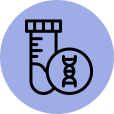

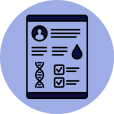
ORDER ONLINE
Your test kit is shipped directly to your home. Your kit will arrive in about 3-4 days, depending on your location.
REGISTER ONLINE
Once you receive your kit, follow the instructions to create your account and register your kit online.
COLLECT & SHIP
Follow the instructions included in your kit to collect your saliva sample and return it in the prepaid envelope.
PROCESSING SAMPLE
Your sample is received and processed at the lab and your genetic material is evaluated for your risk of Alzheimer’s disease.
YOUR RESULTS
Your results will be delivered online in about 7-10 days and you'll have a chance to speak with a medical professional or share with your physician.
What Does GenoRisk Alzheimer’s Measure?
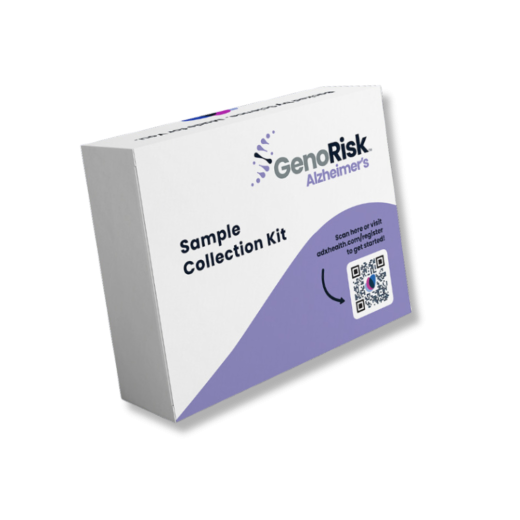
The GenoRisk Alzheimer’s panel evaluates 31 genetic variants found in 23 different genes. The test includes an evaluation of your ApoE status, a gene that alone accounts for approximately one-quarter of the heritability of Alzheimer’s disease. The GenoRisk score is based on a proprietary algorithm developed by a team of scientists, clinicians, and statisticians. All testing is performed in our physician-owned, CAP-accredited and CLIA-certified laboratory in Bellingham, WA.
Your DNA is extracted from your saliva sample, then certain segments of the DNA are amplified by PCR (polymerase chain reaction) and subsequently analyzed by mass spectrometry to distinguish the potential variants at each region of interest.




Know Your Risk, Take Action!
1. Learn Your Genetic Risk
2. Get Your FREE Gift
Order your GenoRisk Alzheimer's at home test. Use code WORLDALZMONTH to SAVE 20% and get FREE shipping!
Watch your email to get a FREE month of RELEVATE a $86.99 value!
RELEVATE: Mediterranean Diet Nutrition to Fuel Brain Power
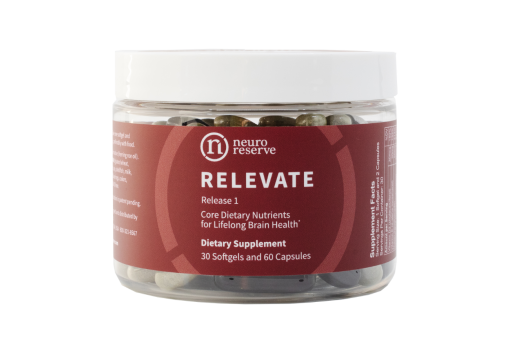
RELEVATE is a brain supplement that that fills the gaps between what most people eat and the diets proven to be healthiest for your brain. RELEVATE is the first and only nutritional supplement based on the Mediterranean and MIND (Mediterranean-DASH Intervention for Neurodegenerative Delay) dietary patterns, shown to be the most effective for strengthening memory and cognitive performance, as well as reducing risk of neurodegenerative disease and dementia.
Recent Articles
Understanding Alzheimer’s Disease
The Brain-Gut Connection: How Your Gut Health Affects Your Brain Function
What are the Top 10 Alzheimer’s Caregiver Challenges?
Aug 1, 2023 | 10 min read
What is Alzheimer’s Disease? Alzheimer’s disease, the most common form of dementia, affects an estimated 6.7 million Americans over the age of 65, a number that is expected to grow to 8.8 million by 2050. Dementia is an umbrella term that refers to changes in brain...
Apr 23, 2023 | 4 min read
It's no secret that our gut plays a vital role in our overall health and well-being. However, recent research has shown that the connection between our gut and brain goes even deeper than we previously thought. In fact, there is a complex and intricate relationship...
May 9, 2023 | 4 min read
Caregiving for an Alzheimer's patient is one of the most demanding roles a person can undertake. Here are 10 challenges a caregiver faces when caring for someone with Alzheimer’s disease.
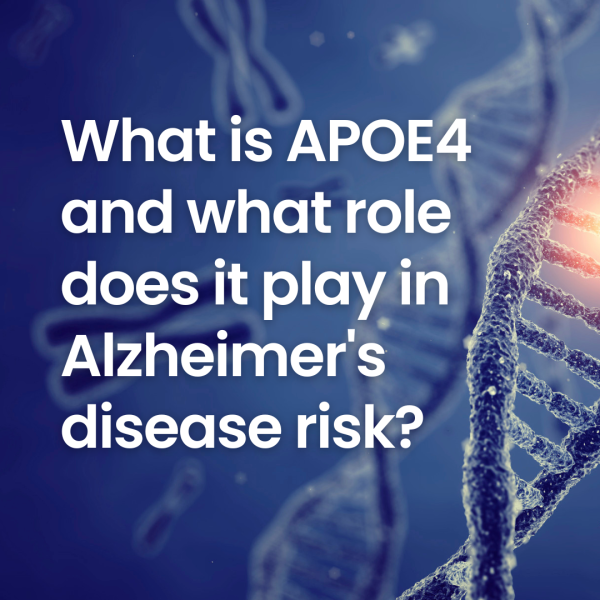
APOE GENE
The APOE gene produces "apolipoprotein E," which moves fat in the body. People inherit two APOE gene copies (one from each parent), resulting in three forms: APOE-e2, e3, and e4. These forms lead to six combinations. APOE-e2 might lower Alzheimer's risk, e3 has average risk, and e4 raises risk. One e4 copy triples risk, two copies increase risk twelvefold.
APOE status isn't a diagnosis but a part of risk, alongside other factors. Possessing e4 doesn't guarantee Alzheimer's. It is also possible to carry no copies of the APOE-e4 gene and still develop the disease. This is an important reminder that there are many factors that go into risk for developing Alzheimer’s disease.
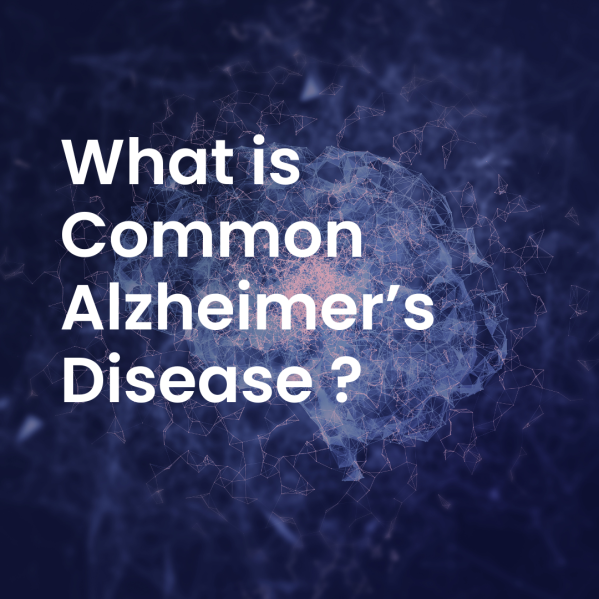
Common Alzheimer's Disease
Common or sporadic Alzheimer's disease refers to the most prevalent form of Alzheimer's, accounting for the majority of cases. It is distinct from familial or inherited Alzheimer's disease, which is caused by specific gene mutations passed down through families.
Common Alzheimer's disease typically occurs later in life and does not have a clear-cut genetic cause. While certain genetic factors may increase the risk of developing common Alzheimer's, they do not guarantee its occurrence. Other factors such as age, lifestyle, and environmental influences also play a role in its development.
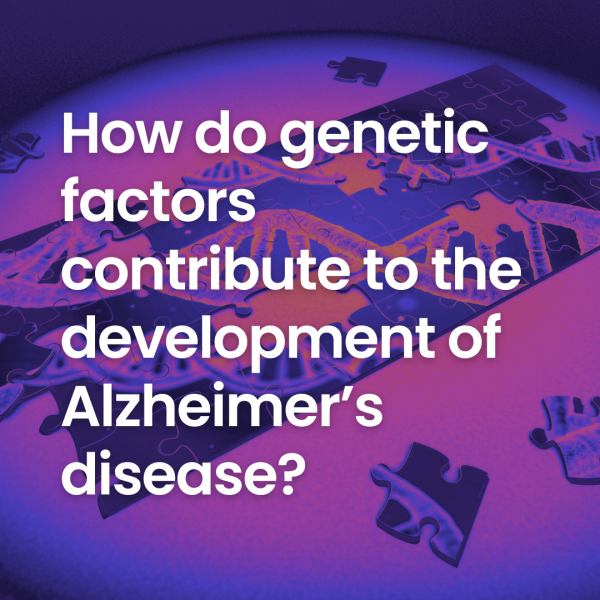
GENETIC FACTORS AND ALZHEIMER'S
Genetic factors play a role in the development of Alzheimer’s disease by influencing an individual’s susceptibility to the condition. Certain genes can increase the risk or alter the age of onset for Alzheimer’s. For example, the APOE4 variant of the APOE gene is associated with an increased risk and earlier onset of the disease. The presence of APOE4 may influence the metabolism and accumulation of amyloid-beta, a protein that forms plaques in the brains of individuals with Alzheimer’s. Additionally, genes such as PSEN1, PSEN2, and APP are involved in the processing and production of amyloid-beta. Mutations in these genes can lead to an overproduction or altered processing of amyloid-beta, contributing to the development of the disease.
While genetic factors are important, it’s worth noting that they are just one piece of the puzzle, and environmental and lifestyle factors also play significant roles in the development of Alzheimer’s disease.
Alzheimer's Disease Statistics 2023
About 1 in 9 people (10.8%) age 65 and older has
Alzheimer’s dementia
Alzheimer's begins 20 years or more before memory loss and other symptoms develop
An estimated 6.7 million Americans aged 65+ are living with Alzheimer’s dementia in 2023
Source: Alzheimer's Association https://www.alz.org/media/documents/alzheimers-facts-and-figures.pdf

YOUR KIT INCLUDES
- Instructions to collect your sample
- Saliva collection tube
- Small funnel
- Biohazard bag
- Return shipping materials
KNOWING YOUR RISK COULD CHANGE YOUR LIFE
Take advantage of this special offer for World Alzheimer’s Month. Purchase a GenoRisk™ Alzheimer’s test and use code WORLDALZMONTH to save 20% AND get FREE shipping!
+Get a FREE month supply of RELEVATE with your order!







